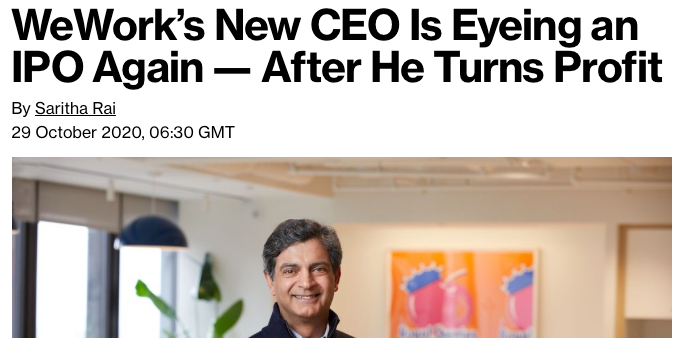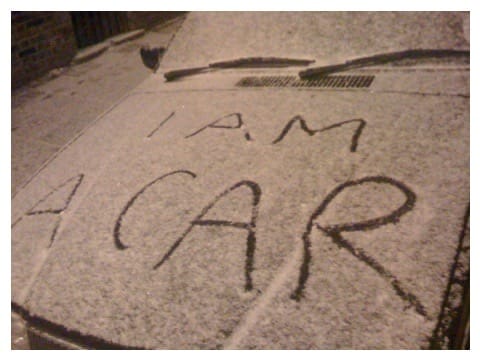A journalism/ social media clash (and what we should do next)
Natasha Bernal shared a piece in my feed today where the new WeWork CEO tried to re-establish the business’s credible path back to IPO.

Natasha Bernal shared a piece in my feed today where the new WeWork CEO tried to re-establish the business’s credible path back to IPO.
I thought it was interesting how the headline from the tweet gave such a different impression to the headline of the piece, check them both out below:
Spot the difference?
The first clause of the tweet is compelling and seemingly factual in a way that has an immediate impact. Indeed, it’s the impact the CEO (and his PR team) so clearly want to get out there: WEWORK IS BACK IN SAFE HANDS AND READY TO GO!
But the article is much more balanced, referencing recent downgrades of ratings on the company from Fitch, based on the warning it may default on its financial obligations.
And all this is against the background of Coronavirus, which is, at best, still something of an unpredictable circumstance.
Where does the journalism stop?
The whole thing made me feel quite uncomfortable — obviously many many more people will see the phrase in the tweet than will go and read the full article. The journalist did their job. But the social media team sharing it has undermined a really important element of its integrity.
It’s not disinformation. It’s just a dilution of control over meaning. Everything like this is fraying away at the edges, but especially around social media.
At times, social media feels a bit like the standards and level of discourse that used to be the (horrible) comments section of websites has become the new normal.
Making social work
Personally, this makes me want to disengage more from social. Always return more closely to fewer and more disciplined sources for my information. The relatively staid and steady hand of the Financial Times or Economist.
I go through periods now of deactivating Twitter and Instagram (there are smart features on both that let you literally kill your account and turn it back on within 30 days.) This is not to detox, but more to just hammer in a break of their momentum as habits.
In those periods, I think I do feel just as well informed and almost by definition, my attention is less fragmented.
But I wish there were more options for functional ways to add the best of Twitter back into the mix.
The power of the algorithm
We talk a lot about how algorithms determine what we see on social networks and how little control we have over them. Part of me wishes I could start to develop my own algorithm independent of the networks, that I could apply across them.
It might be anchored around the articles I favour and weight as most important in my longer reading — books, RSS feeds and other favourite sources.
How could we anchor around authors or sources that we respect more?
No doubt it’s against the terms of service of those other networks. But perhaps it could be done independently and skip them out.
Perhaps that kind of immediate knowledge graph connection, existing independently of the networks themselves could be a healthier vantage for consuming it.
As ever though, it comes down to who has the time/ interest/ incentive to take on that massive challenge.
I wonder if we get to the point where services like this could become a worthy public good. Probably not while education, healthcare etc must come first. But isn’t the value of a functioning democracy as important in its own way?
Disappointingly, I expect it will be some time before we have a Government who even considers the question fully.

